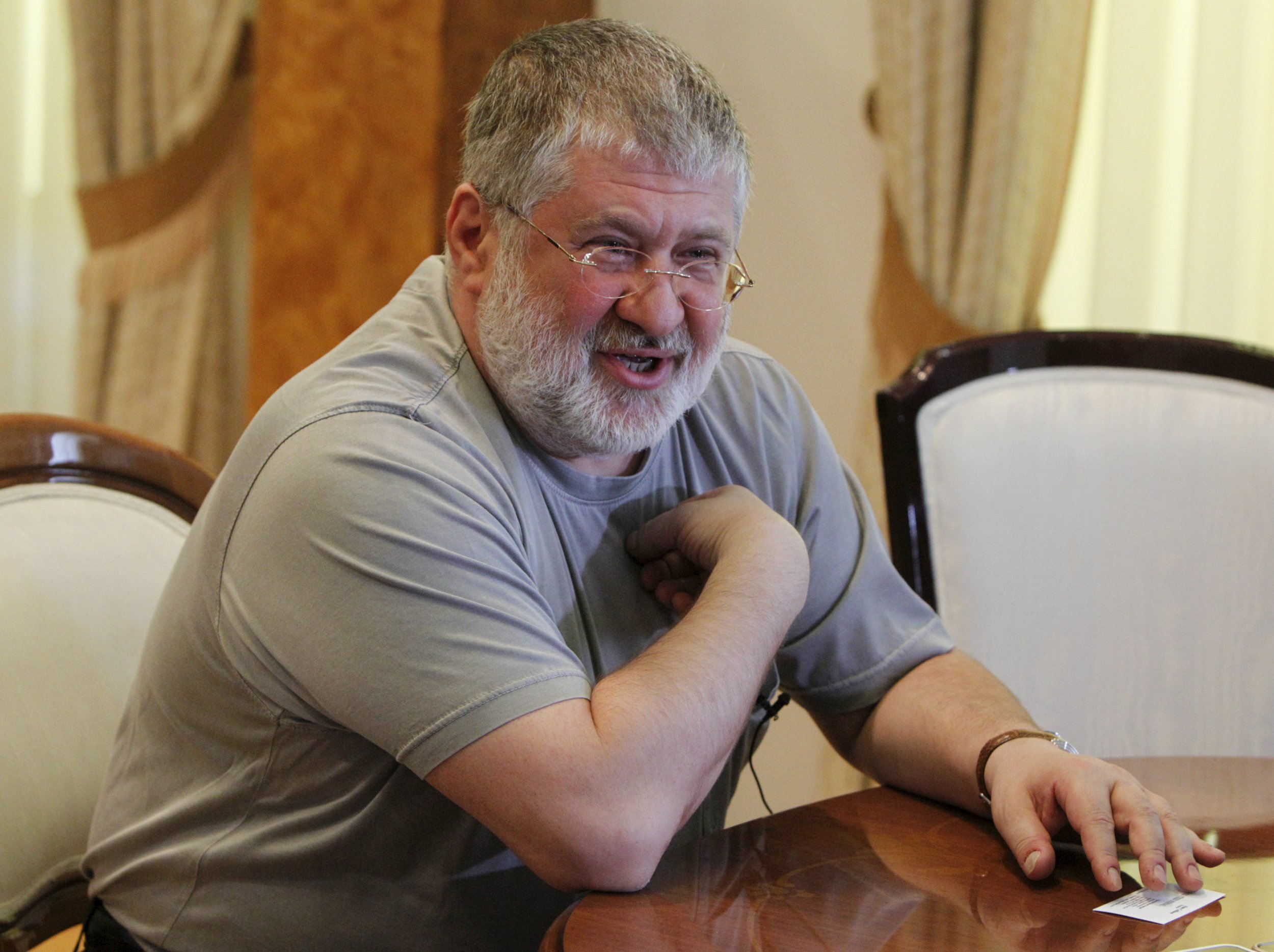
According to a recent poll, Ukrainians see three key threats to their country: corruption, oligarchs and Russian aggression.
The dismissal of oligarch Igor Kolomoisky from his post as governor of the Dnipropetrovsk region has now exposed the challenges facing the Ukranian government in tackling the first two of these problems, and is just the beginning of a protracted struggle with vested interests.
Reform is essential but not without risk—business moguls will try to mobilize resources to preserve their influence and they still hold leverage.
One of the main reasons for Ukraine's stalled transformation over the 24 years since the end of the Soviet Union is the fact that politics has been subject to the interests of big business. The country's economy has been captured by oligarchs, most of whom accumulated their wealth through murky privatization of major industrial assets and through energy trade with Russia. According to different estimates, they control around 70 percent of Ukraine's economy.
Over the last two decades, the oligarchs created a structure that protected their monopolies, provided access to cheap energy and gave them control over lucrative state-owned companies. Their leverage comes from the control of media resources, political party finance and several key state enterprises. The metallurgic industry alone, heavily controlled by oligarchs, generates over 40 percent of foreign currency inflows and employs over 200,000 workers.
In many cases, the legal framework set up by the oligarchs' political cronies ensured their actions remained within the boundaries of the law. Whenever a new minister was appointed, it was common for people to ask which oligarch "owns" him or her. Members of parliament also formed a tight network around the oligarchs they served.
This system nurtured corruption and destroyed competition. Ukraine's GDP per capita is only slightly higher than it was in 1991, when it was on par with Poland. Now it is four times lower. Ukraine is ranked last out of 43 countries in Europe on economic freedom.
New reform efforts
But things are changing. The victory of the Euromaidan movement and the subsequent parliamentary elections resulted in a pro-reform majority in parliament. That, together with Russia's occupation of Crimea and the proxy war in the Donbass, where many oligarchs have assets, shattered the status quo among the powerful business groups. The new generation of lawmakers seems more determined to bring structural change and rid the political system of vested interests.
Most Ukrainian oligarchs have seen their wealth melt away. Some have had a run-in with justice. Rinat Akhmetov, Ukraine's richest oligarch and a backer of ousted President Viktor Yanukovych, has lost $5.8 billion over the past year. He had to flee Donetsk in May 2014 and his lavish mansion was captured by armed separatists.
Dmytro Firtash, another business mogul, is currently under house arrest in Vienna awaiting a decision on his extradition to the U.S. on corruption charges. In February, Ukraine's prosecutor general re-opened the criminal investigation into the killing of journalist Georgiy Gongadze in 2000, with former president Leonid Kuchma—who is also the father-in-law of another oligarch, Victor Pinchuk—as one of the suspects.
Then last month, Kolomoisky challenged the government's decision to replace one of his allies, Igor Lazorko, as the CEO of oil company Ukrtransnafta, where Kolomoisky is a minority shareholder. He ordered his security guards in full military gear to take over the company headquarters in Kiev and accused the government of raiding his business. Five days later President Petro Poroshenko dismissed him.
Until recently, it seemed Kolomoisky was unique in having improved his position. He funded private military battalions, which played a decisive role in defending the region from the Russian-backed separatists. This improved Kolomoisky's public image considerably, but his rising power was a concern for citizens, the new political elite and Ukraine's Western partners.
Kolomoisky's weight is stronger than most because of his local popularity and ownership of the largest private bank in Ukraine. He may assert pressure on Kiev by mobilizing public opinion in southeastern Ukraine, which is more open to discussions of "federalization."
For example, in his native Dnipropetrovsk, 34 percent of citizens support federal status, which means more autonomy from Kiev than is offered by the current plans for decentralization. This would play into Putin's pressures for a version of federalization that benefits Russia and weakens Ukraine's central government, after Poroshenko successfully fought to preserve Ukraine as a unitary state during the Minsk II negotiations.
Even Poroshenko is not immune from accusations of reluctance to separate politics and business. He promised to sell his Roshen confectionery business upon taking up office, but has not yet done so.
The next test
First steps have already been taken to mitigate oligarchic influence: a new law strengthening accountability of judges, public oversight and the independence of the judiciary; a decision to transform the national TV channel into an independent public broadcaster, strengthening the media environment; and the integration of private armies into the national guard. Further goals should include new rules on party finance transparency and the role of the antimonopoly committee, and the West should make financial support to Ukraine conditional on continuing reform.
The 2015 privatization of over 2,000 state-owned enterprises and the reform of the gas and electricity markets will be the next major tests for the government. Will they help toward a more level playing field for investors or will they simply breed new oligarchs?
Orysia Lutsevych held the Robert Bosch fellowship at Chatham House, the Royal Institute of International Affairs, in 2012 and was also a research fellow with the Russia and Eurasia program. This article first appeared on the Chatham House website.
Uncommon Knowledge
Newsweek is committed to challenging conventional wisdom and finding connections in the search for common ground.
Newsweek is committed to challenging conventional wisdom and finding connections in the search for common ground.
About the writer
To read how Newsweek uses AI as a newsroom tool, Click here.








